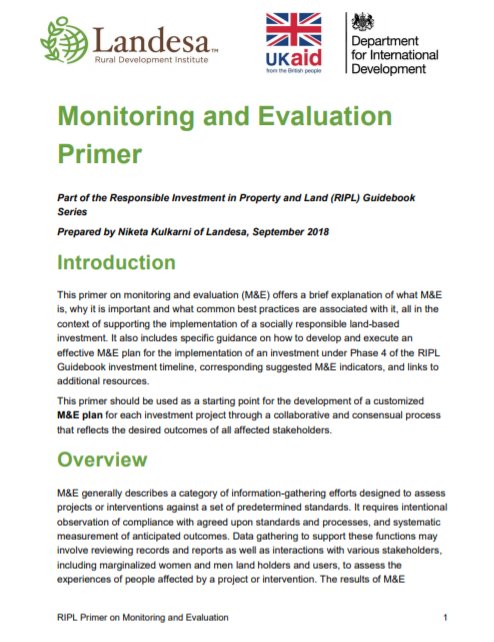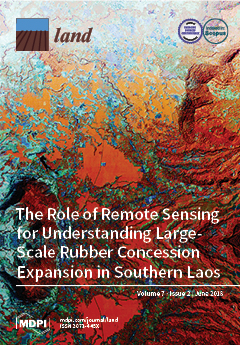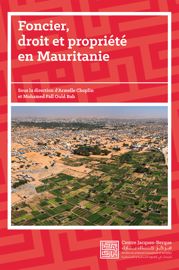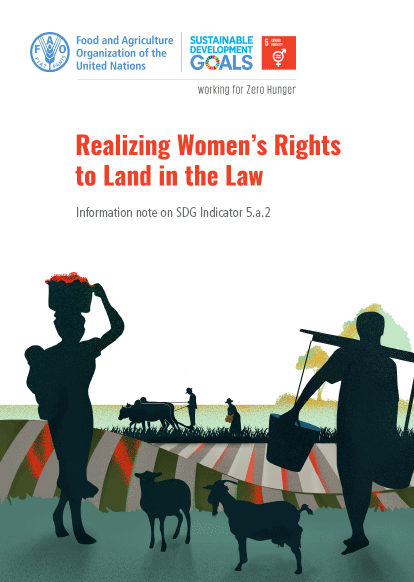Monitoring and Evaluation Primer (Responsible Investment in Property and Land (RIPL) Guidebook Series)
This primer on monitoring and evaluation (M&E) offers a brief explanation of what M&E is, why it is important and what common best practices are associated with it, all in the context of supporting the implementation of a socially responsible land-based investment. It also includes specific guidance on how to develop and execute an effective M&E plan for the implementation of an investment.










